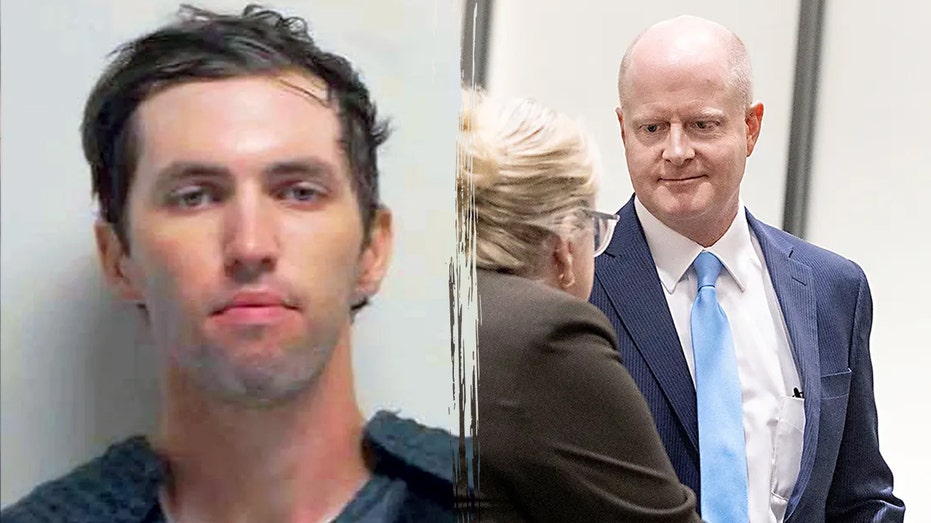Prosecutors in the Tyler Robinson case wasted no time in declaring they had already gathered “voluminous” evidence against Charlie Kirk’s accused assassin.
“There is a substantial amount of discovery in this case, Your Honor. It’s voluminous, to say the least. And we’re working on a process where we can exchange information as quickly as possible and be efficient in that process,” Utah County Chief Deputy Attorney Chad Grunander said Monday during Robinson’s court appearance.
To better understand the strategy behind that phrase, Fox News Digital spoke with Dan Gerl, a Washington state-based defense attorney at Next Law, who previously served as a prosecutor and has more than 20 years of courtroom experience. Gerl said the prosecution’s emphasis on the volume of material was no accident, and it sets the stage for how the case may unfold in the months ahead.
Prosecutors have already pointed to multiple forms of evidence, according to Gerl.
“You’ve got physical evidence, video surveillance showing what appears to be Robinson on the roof, the weapon found tied to his grandfather, bullet casings with inscriptions linked to online forums, messages from his social media accounts and even prints from his body and shoes on the roof,” Gerl said.
In the aftermath of the assassination of Kirk, FBI Director Kash Patel said a positive DNA match and text messages where the accused appeared to admit to the shooting.
From the prosecution’s perspective, emphasizing the size of the evidence file serves multiple purposes.
“It makes it very difficult for the defense,” Gerl explained. “They can come forward early on and paint the picture: ‘This guy did it.’ Within the confines of ethics, there’s nothing preventing them from doing that, and it sets the tone.”
The approach also signals thoroughness in a case Gerl described as a “calling all cars” moment, with political pressure from “government officials all the way to the top wanting action here.”
By showcasing evidence early and often, Gerl said, prosecutors reinforce their narrative, exert pressure in potential plea negotiations and shape the public’s perception.
Robinson’s defense team, which includes Kathryn Nester, Richard Novak and Michael Burt, will likely focus on the manner in which this evidence was obtained, Gerl said.
“They’re going to attack it on all fronts,” Gerl said. “There will be motions to suppress, challenges to the legality of searches and scrutiny of how evidence was obtained. Anything investigators pulled without proper warrants, especially from phone records or social media accounts, could be contested.”
The defense may also probe whether investigators mishandled or improperly collected evidence, similar to tactics used in the O.J. Simpson trial, he said.
Beyond procedural challenges, Gerl expects Robinson’s mental state to play a central role.
“What happened with this kid? A few years ago, he was a jubilant high school student with a scholarship. Then he drops out. Was there mental health history? That could become part of mitigation or even a push toward hospitalization instead of criminal conviction.”
While physical evidence such as fingerprints and DNA is harder to dispute, digital records present unique challenges. Gerl, pointing to online speculation about the legitimacy of the text messages released by federal law enforcement, said that such doubts, even if unproven, could complicate the prosecution’s narrative.
“Digital evidence is frozen in time now, but down the line, it may be harder to know what’s authentic,” Gerl warned. “Jurors are going to see AI-generated videos that look real, and defense attorneys will plant the seed: could some of this have been manufactured?”
WATCH: Tyler Robinson’s online messages gave investigators a ‘roadmap to his door,’ says attorney
READ THE MOTION – APP USERS, CLICK HERE
On Monday, Robinson’s defense team formally responded to prosecutors’ claims by filing a sweeping discovery request in Utah’s Fourth Judicial District Court. The motion, signed by attorneys Nester, Novak and Burt, seeks access to virtually every category of evidence collected in the case.
The request demands disclosure of 911 recordings, police bodycam transcripts, cellphone extractions, original digital files, chain of custody records, and the results of DNA, fingerprint and firearm testing. It also seeks mental health records.
Prosecutors have charged Robinson with seven counts, including aggravated murder, which carries the potential death penalty, felony firearms charges, obstruction of justice, witness tampering and committing violence in the presence of a child. He has not yet entered a plea.
Fox News Digital has reached out to Robinson’s defense team for comment.
























